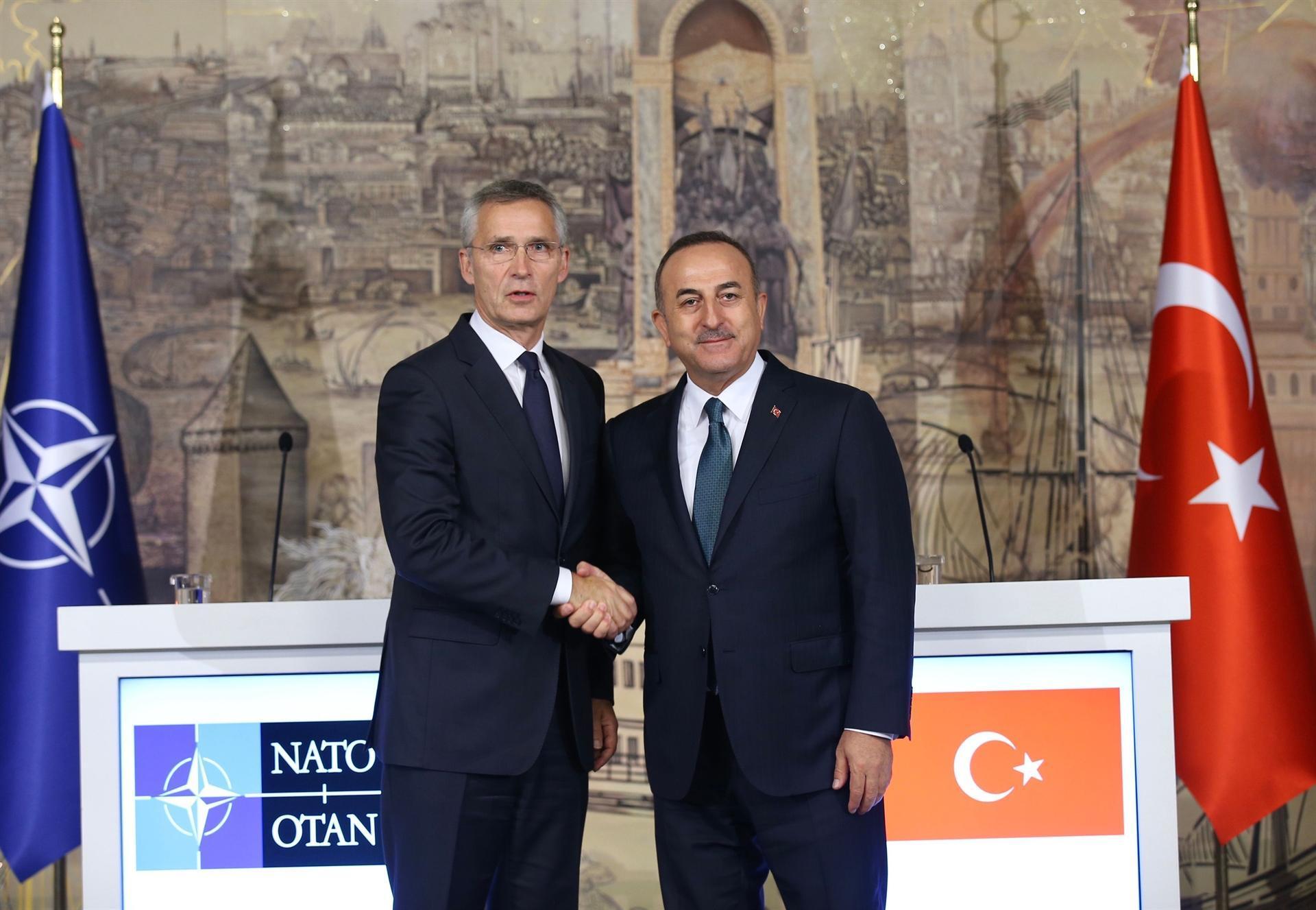
Turkey has expressed its expectation from NATO to provide clear solidarity in its fight against the YPG in northeastern Syria, saying the struggle will also strengthen the alliance territory.
“It’s not enough to say, ‘We understand Turkey’s legitimate concerns.’ We want to see clear solidarity,” said Foreign Minister Mevlüt Çavuşoğlu said on Oct. 11, speaking at a joint press conference with NATO’s Secretary-General Jens Stoltenberg.
“It’s our most natural and legitimate expectation that our allies show solidarity to us in the framework of the principle of indivisibility of security.”
Stoltenberg paid a one-day visit to Turkey to talk with the President Recep Tayyip Erdoğan and Çavuşoğlu for the preparations of the NATO’s 70th anniversary summit to take place in London in early December.
His visit comes right after the start of Turkey’s “Operation Peace Spring” against the presence of the YPG in northeastern Syria, an intervention that has drawn criticisms from prominent NATO members, France, Germany, Italy and Britain.
Çavuşoğlu recalled that although they have slammed the Turkish operation these countries have always expressed that they acknowledge Turkey’s legitimate security concerns regarding the Syrian territories.
“If you acknowledge that these security concerns are legitimate, you should also acknowledge that these concerns stem from the YPG,” he said. Underlining that Turkey sits in a location full of regional hot and frozen conflicts, Çavuşoğlu said, “[The operation] is therefore highly important for the security of alliance territory.”
The minister said he informed Stoltenberg about the operation with expectations that the alliance will provide strong solidarity to Turkey without distinguishing between terror organizations.
“As Turkey, we have struggled and will continue to fight against all terror organizations regardless of their ideologies and targets,” he said.
Çavuşoğlu said Turkey used diplomacy for setting up a safe zone with the United States but these talks could not be accomplished.
NATO chief expresses concerns
For his part, Stoltenberg expressed “serious concerns” about Turkey’s ongoing operation against the YPG in Syria and called for “restraint.”
“I shared... my serious concerns about this ongoing operation and the risk of further destabilization of the region,” he said, adding he is also concerned of a new humanitarian crisis. “While Turkey has serious security concerns, we expect Turkey to act with restraint.”
Stoltenberg emphasized that Turkey was an important part of the NATO alliance, but said the operation in Syria, which began on Wednesday, should not undermine gains against ISIL. “These gains must not be jeopardized. An imminent concern is that captured Daesh prisoners must not be allowed to escape,” he said, using an alternative name for ISIL.
Spain, Italy pull back air defense systems in Turkey
Another issue the two men have discussed was decisions by the Spanish and Italian governments not to extend the deployment of their air defense systems in Turkey to protect the allied country’s air space against attacks by the Syrian regimes.
Spain has a Patriot contingent on İncirlik base near the southern province of Adana and Italy has SAMP/T in the southeastern province of Kahramanmaraş. The former had already decided to end its presence in Turkey while the Italian government has recently decided to pull back its contingent. There are ongoing talks for the deployment of a French SAMP/T air defense system under the NATO program.
“We expect NATO allies to continue to provide support to Turkey because this is something that was agreed,” said Stoltenberg.
Çavuşoğlu recalled that Italy will withdraw its contingent by Nov. 15 and said. “All these debates and developments show that Turkey has to buy its own air defense systems. We are not going to beg endlessly... This is one reason why we bought the S-400.”